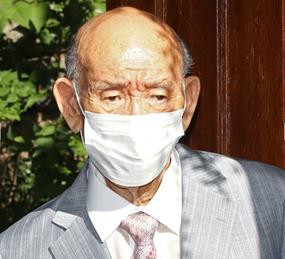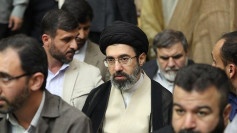Chun Doo-hwan, South Korea's most reviled former military dictator, died on Tuesday at his residence in Seoul. He seized power in a coup and controlled the country with an iron grip for the majority of the 1980s. He was 90 years old.
Chun seized power and ruthlessly suppressed pro-democracy demonstrations before being imprisoned for his offenses while in office. According to emergency officials, Chun suffered a heart attack and was brought to his Seoul apartment.
Chun was sentenced to death in 1996, eight years after leaving office, on mutiny and sedition charges resulting from his role in the 1979 coup that brought him to power and the following year's killing of demonstrators in the southwestern city of Gwangju.
However, Chun was pardoned in 1997 as a gesture of reconciliation, shortly after the election of Kim Dae-jung, a former dissident whom Chun's military government had once sentenced to death.
Hundreds of pro-democracy demonstrators were slain and tens of thousands imprisoned under Chun's 1980s administration, but he allowed for modest reform following years of authoritarian control. Under public pressure, he permitted the nation's first direct and free election.
Chun was also found guilty of accepting hundreds of millions of dollars in bribes from wealthy, politically powerful families known as Chaebol, whose businesses grew into conglomerates as a result of tax breaks and other government favors.
Chun was a major general in the army when he and his military friends seized power in December 1979. Tanks and troops swept into Seoul in a military coup less than two months after his mentor, President Park Chung-hee, was assassinated during a late-night drinking party by the intelligence chief.
Chun rapidly solidified his control by putting down a civic revolt in Gwangju, then spelled Kwangju. Additionally, his regime imprisoned tens of thousands of students and other civilians under the pretext of eradicating societal evil.
Government records show, the military crackdown in Gwangju claimed approximately 200 lives. Activists, on the other hand, claim that considerably more civilians died. Chun's military tribunal arrested and sentenced to death opposition leader Kim Dae-jung for allegedly fomenting the Gwangju insurrection.
Kim's sentence was commuted and he was eventually released after the U.S. intervened.
South Korea's economy grew significantly during Chun's presidency. Additionally, the country hosted the 1986 Asian Games and was awarded the privilege to host the 1988 Summer Olympics, which began shortly after he left government.
Chun, on the other hand, is primarily remembered as a dictator.
"Among South Koreans, his name conjures up images of a despotic military ruler," said Choi Jin, director of Seoul's Institute for Presidential Leadership.






